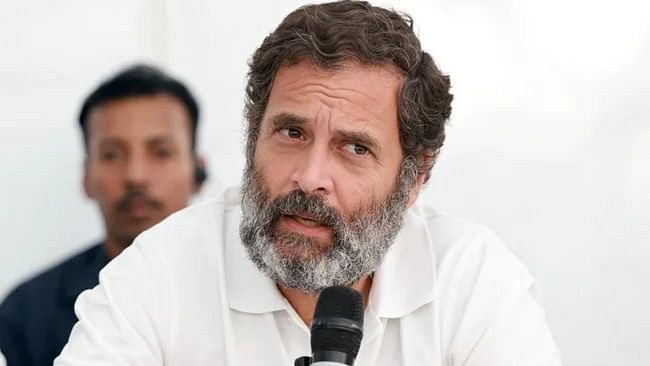
In response to a complaint made by BJP MLA and former Gujarat minister Purnesh Modi against the former Congress president for his alleged “how come all the robbers have Modi as the common surname?” remarks.Rahul Gandhi was found guilty of criminal defamation on Thursday and sentenced for a two-year prison term by Surat district court.
Gandhi was charged with violating sections 499 and 500 of the Indian Penal Code, which state that anyone who makes or publishes an accusation about another person while intending to harm that person’s reputation or while knowing or having reason to believe that such an accusation will do so is considered to have defamed that person and is subject to a sentence of up to two years in jail.
H H Verma, Chief Judicial Magistrate, issued the directive. Gandhi and several other national and state Congress leaders were in the courtroom on Thursday afternoon. To avoid unfavourable events, the Surat police had tightened security measures on the court grounds.However he was granted bail with a bond of Rs 15,000 by the court, and the punishment was suspended for 30 days so that he could file an appeal.
But besides this there is another trouble brewing for Rahul Gandhi as there is widespread suspicion that Gandhi will be expelled from the Lok Sabha as a result of a 2013 Supreme Court decision regarding convicted MPs. It’s interesting that he was the one who openly dismantled his own government’s ordinance, rendering the ruling invalid.
Gandhi can, however, appeal to a higher court to stop any such action.If Gandhi cannot obtain a stay on the conviction (and not simply the punishment) from an appellate court, in this case a sessions court, within that timeframe, his disqualification will take effect after one month.Gandhi is convicted in a criminal matter, hence he cannot formally petition the high court or the Supreme Court. On the grounds that the Surat court’s decision injured the broader public interest, a third party could, nevertheless, petition the higher judiciary for intervention.
Disqualification of a MP/MLA for a conviction occurs in two situations:
First, a crime must be one that is included in Section 8(1) of the 1951 Representation of the People Act. These includes crimes like bribery and improper influence, among others. This part does not cover defamation.
Second, if a politician receives a two-year prison sentence after being found guilty of further crimes. According to Section 8(3), an MP is subject to disqualification if found guilty and given a term of at least two years in prison.
Section 8(4)of the Indian Penal Code was repealed by the Supreme Court in Lily Thomas v. Union of India (2013). According to the top court, lawmakers and state legislators who are found guilty of crimes would be immediately removed from office without being given three months to file an appeal.The Congress-led United Progressive Alliance attempted to have the ruling overturned and keep section 8(4)in effect that same year. The UPA’s ordinance, however, was rejected by Rahul Gandhi, who referred to it as “total foolishness that should be pulled up and thrown away.”
